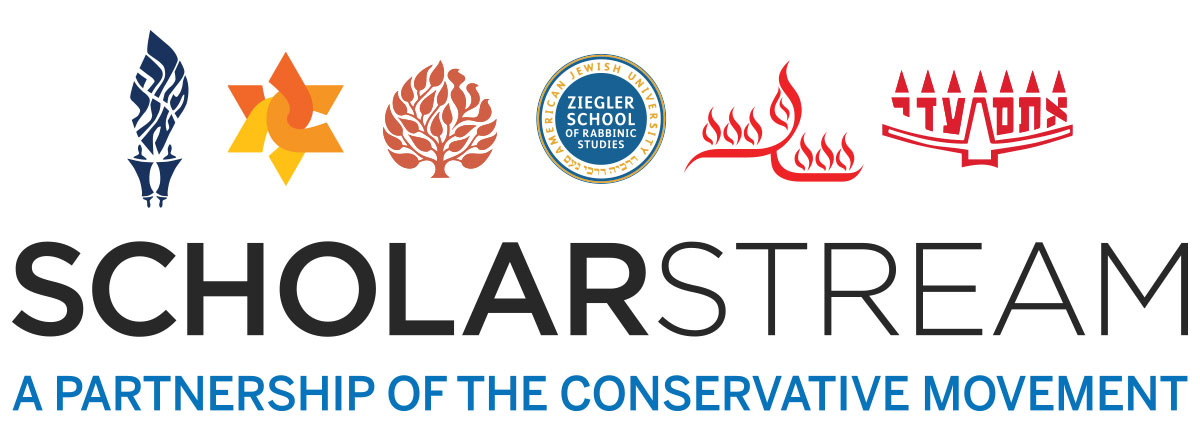
Following a successful launch of our ScholarStream program in 5781, we are excited to announce the full year of ScholarStream learning in 5782! Beginning in October and spanning all the way up to Shavuot, the Conservative Movement seminaries and institutions are partnering to offer eight series that will bring you face-to-face with the brightest and most engaging scholars our movement has to offer.
Scholarstream 5782 features three distinct arcs of learning that stand alone or flow into each other. Cultivating Our Relationships (series 1 & 2), Defining Our Sacred Spaces (series 3, 4, and 5), and Renewing Our Resilience (series 6, 7, and 8) will offer an exploration of who we are, where we are in relation to others, and how we move forward in this complicated world.
Individuals may register below. If you are part of a synagogue or organization interested in sponsoring ScholarStream, please click here. We are grateful to the many organizations who have already signed on as ScholarStream sponsors - see the full list here.
We are pleased to announce below the full descriptions for our second series on Ethics. Descriptions for our first series on Torah Relationships can also be found on our website here.
Risking One’s Life to Save Another: Required or Forbidden by Jewish Law?
Tuesday, November 2 at 1:00 PM ET (10:00 AM PT)
Teacher: Rabbi Prof. David Golinkin, The Schechter Institutes, Inc.
Description: If you see someone drowning in a raging river – are you required or forbidden to try to save that person? If a mountain climber sees another climber lying in the snow – how far must he go to save the other climber? Must a doctor endanger her life to save another, or is this forbidden? In this session we shall study the main rabbinic sources regarding these moral dilemmas, which have been debated by rabbis for the past 2,000 years.
Can a Halakha be Immoral?
Tuesday, November 9 at 1:00 PM ET (10:00 AM PT)
Teacher: Rabbi Avi Novis Deutsch, Schechter Rabbinical Seminary
Description: In this session, we will try to define the relationship and the tensions between “halakha” and “ethics” as concepts, and examine how different rabbis dealt with this dilemma. We will also see how this dilemma still plays a major role in many contemporary Jewish debates, both in Israel and the Diaspora.
Moral Dilemmas in the Teachings of the Mei Hashiloah, Reb Mordechai Yosef Lainer of Ishbitza
Tuesday, November 16 at 1:00 PM ET (10:00 AM PT)
Teacher: Rabbi Dr. Reb Mimi Feigelson, Schechter Rabbinical Seminary
Description: What does it mean that halakha is not one and the same for all? Was it ever meant to be? And can we wrap our minds around a situation in which our moral sensibilities are challenged “in God's name”? Challenged in the name of what is presented as “God’s Will”? Join me in debating some of the more controversial teachings of the Ishbitzer Rebbe.
“Leshon Hara” (Gossip and Slander): an age-old ethical challenge
Tuesday, November 23 at 1:00 PM ET (10:00 AM PT)
Teacher: Rabbi Chaya Rowen Baker, Schechter Rabbinical Seminary
Description: The prohibition of Leshon Hara is one of the most difficult mitzvot to observe. How can we “guard our tongues from evil” in our personal and professional lives? What can we learn from the Biblical stories of Joseph, Miriam and the Spies? Are there ever occasions when it’s permissible to speak Leshon Hara?
Stay tuned! Descriptions for our third series on The Roots of Conservative Judaism starting on December 7, 2021 will be available soon. Themes will include an overview of the history of Conservative Judaism, including the historical and sociological factors that were key to creating the Conservative Movement.
